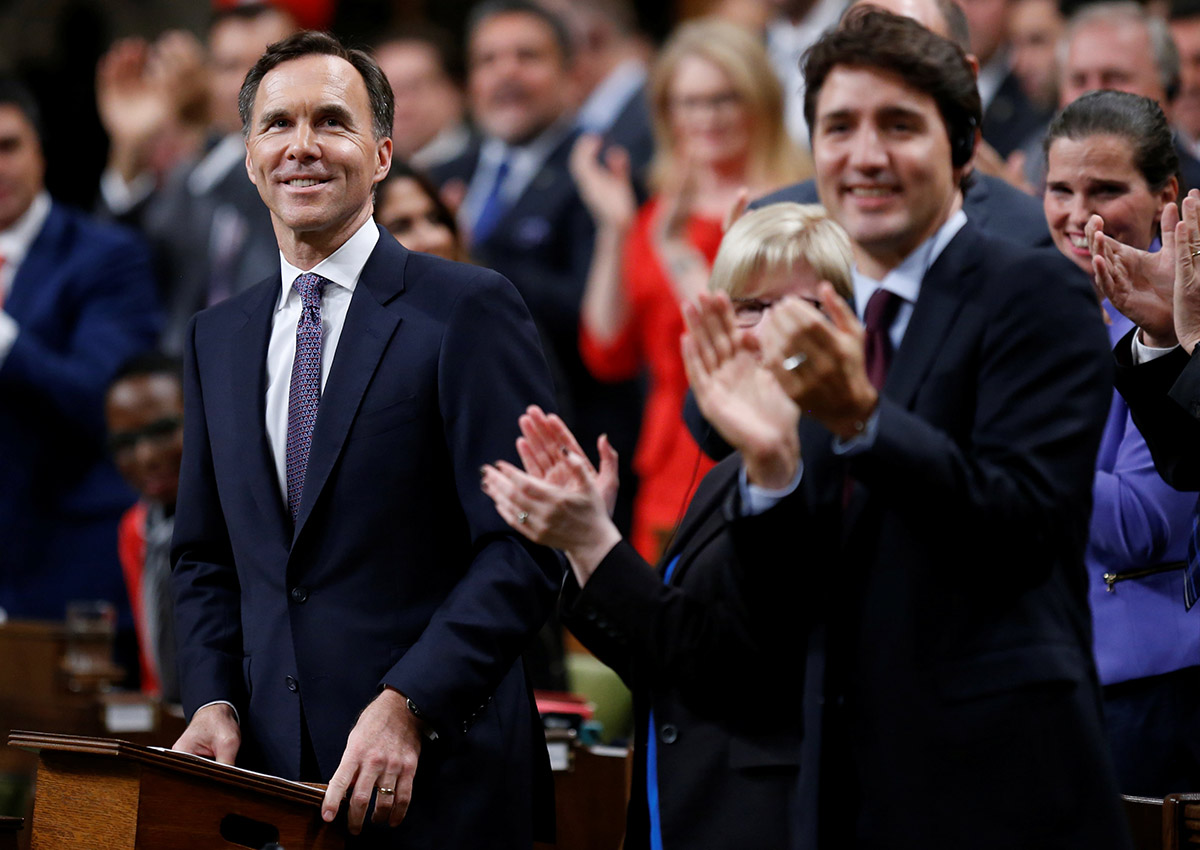There’s an old joke about Question Period in the House of Commons: something to the effect of “there’s a reason it’s not called Answer Period,” although I suppose you’d have to be pretty cynical to appreciate the humour.

Lately, the Liberals have become a living embodiment of that joke as they deflect and dodge legitimate questions about Finance Minister Bill Morneau and the potential conflicts of interest he may have placed himself in. Almost every time the opposition press the government on these questions, the Liberals instead fall back on their talking points about how well the economy is doing or how much the finance minister is doing to help Canadians.
It’s bizarre logic since it would follow then that if the economy was doing poorly or we were in a recession, then Morneau’s apparent ethical lapses would be more relevant. In reality, the two things have nothing to do with one another and the Liberals are making a mockery of Parliament — and insulting Canadians in the process — by refusing to answer these entirely legitimate questions.
Now, with every step Morneau takes to try and make this controversy go away — announcing that he’s selling off his shares in his family company Morneau Shepell Inc. (MSI), announcing that he’s establishing a blind trust for his assets, announcing that he’ll donate any capital gains he hears from selling those shares — it simply begs more questions. Why didn’t he do all of this two years ago? Is this an admission that he made a mistake by not doing so?

Get breaking National news
At least on the latter, we have an answer. Morneau told Global’s Vassy Kapelos that he does not believe he did anything wrong, or that any mistakes were made along the way. So presumably then this is all for show, which just makes the whole exercise seem even more cynical.
- ‘We now have to figure out how to live life without her’: Mother of Tumbler Ridge shooting victim speaks
- Trump slams Canada as U.S. House passes symbolic vote to end tariffs
- Carney, federal party leaders to attend Tumbler Ridge shooting vigil Friday
- Mental health support after Tumbler Ridge shooting ‘essential,’ experts say
So, if the Liberals are going to sound like broken records with their scripted and irrelevant answers, then it forces the opposition and the media to sound like broken record by repeatedly asking the same questions — questions to which Canadians deserve answers.
For example, why did Morneau own the shares in MSI through numbered companies? Why was one of those numbered companies registered in Alberta (a lovely province, but one in which the finance minister has never resided)?
Moreover, though, has Morneau recused himself from decisions that could potentially impact MSI, most notably Bill C-27, which Morneau himself personally tabled? That legislation would allow for so-called target benefit pension plans, something that’s right up MSI’s alley. So if Morneau didn’t recuse himself from shaping decisions that could benefit MSI, why not? What did the prime minister know, and what did he advise his finance minister?
Even the ethics commissioner herself has now expressed concerned with regard to Morneau’s involvement with Bill C-27.
WATCH BELOW:
Additionally, we’ve since learned of contracts MSI has with none other than Bombardier, again raising questions about whether Morneau would have recused himself from any government decision to assist Bombardier, which would, by extension, be of benefit to MSI.
We have no idea the answers to these questions and there’s no reason at all why that should be the case.
It was obvious two years ago that this was a potential minefield for the Liberals, and the most charitable explanation for their bizarrely blasé handling of all of this is that they were extremely naïve. The fact, though, that they cannot answer even the most simple and basic questions about their decisions on whether Morneau recused himself when obvious conflicts arose suggests something much more damning than mere naivety.
Justin Trudeau himself promised Canadians two years ago that his government would “set a higher bar for openness and transparency in Ottawa.” It would appear, then, that we can add another to the list of broken Liberal promises.
Rob Breakenridge is host of “Afternoons with Rob Breakenridge” on Calgary’s NewsTalk 770 and a commentator for Global News.
















Comments
Want to discuss? Please read our Commenting Policy first.